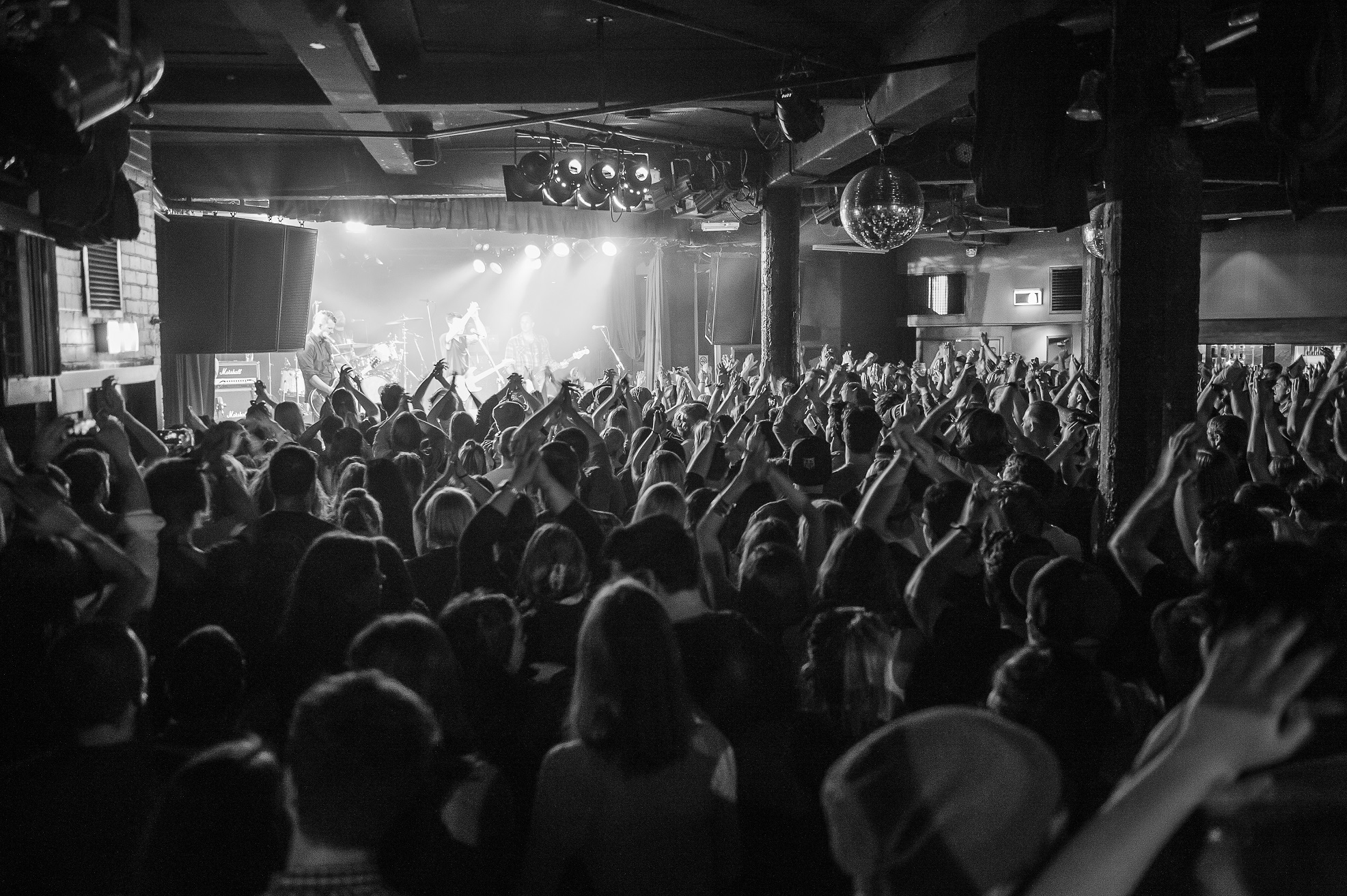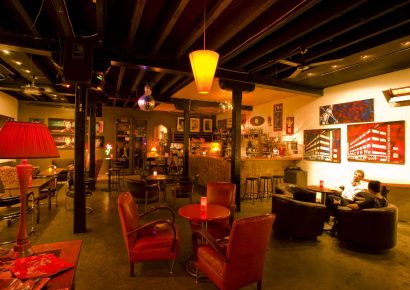And how punters can get involved with stopping dickhead behaviour.
It’s a Friday night and you’ve knocked off work to go catch a band you’ve been stoked all week to see. You rock up to the packed venue with your mates, grab a drink and try to find a decent spot among the throng of people.
Then all hell breaks loose when the band comes on. The mosh pit starts lurching around, knocking people over and throwing drinks in the air. A group of wasted blokes push in front of you and block your vision, stand on your feet and launch stray elbows into your face as they flail around. You can barely pay attention to the band anymore, and what was meant to be an awesome night becomes tiring, frustrating and ultimately, disappointing.
It’s probably a familiar scenario for most of us – but that doesn’t make it okay.
Keep up with the latest music news, features, festivals, interviews and reviews here.
We shouldn’t have to accept these experiences as part of gig culture. Violent moshing, “walls of death”, and not-so-sneaky bum grabs are impeding on everyone’s right to enjoy a show, and this behaviour needs to stop. But, as the age-old adage goes, it takes a village, and it’s not something that just one person or group in the music industry can change alone.
Live music wouldn’t exist the way it does without the venues that foster it. Melbourne is full of great places to catch gigs, and there’s something on every night. No matter the size or location, most venues have some sort of safety plan in place – though these usually involve burly security guards and signs warning patrons not to mosh, crowd surf or throw things onstage.
Now, there’s nothing wrong with either of these measures and most of the time they do a relatively ok job of deterring people, but to change an undesirable gig culture, more needs to be done.
One venue leading by example is Richmond’s Corner Hotel, an institution in Melbourne’s live music scene. Of course, the Corner still boasts a well-trained security team, barriers for mosh-heavy shows, and signage around the joint, but it’s gone one step further, aiming to cultivate a safe and inclusive environment for all music lovers.
“It’s something that we’ve been onto for a lot of years,” said the Corner’s Sally Mather on tackling unwelcome behaviour.
“We don’t want to stop people having a good time – because things like moshing are part of going to a show, particularly for certain types of genres – but it’s trying to make sure that people are considerate.”
To achieve this, the Corner Hotel and its sister venue, Northcote Social Club, have both implemented what it refers to as its safer spaces policies. The policies are something the managers have worked on over the past few years, equipping staff with knowledge and skills to handle situations like sexual harassment and assault, as well as general inclusivity.
“It’s a broad-reaching program,” Mather explains.
“We’re basically trying to create a culture where our staff are aware, pushing for inclusion and trying to create that community and level of welcome for anyone coming to the venues.”
Mather says that having a team of fully trained staff has encouraged a more open line of communication, and punters have been more forthcoming about witnessing or being victims of undesirable behaviour.
“The biggest thing that’s changed is the reporting side of it, so people coming forward and saying if something is making them uncomfortable or saying if something is going on, and it means that we as a venue can actually do something about it,” she says.
Of course, the Corner Hotel isn’t the only venue in Melbourne taking strides with this. The Victorian state government launched their 12-week pilot program, aiming to tackle sexual harassment at licensed venues. Popular music spots like Howler, Revolver Upstairs and The Croxton Bandroom all jumped on board, receiving staff training and signage about respectful behaviour.
Then there are campaigns like Your Choice, which are also supported by plenty of venues across the state. Heaps of festivals are also taking strides, too.
Unfortunately, the creeps, dickheads and drunken idiots of the world can’t be stamped out completely, and no venue can actively force their patrons to abide by their rules. But by having them in the first place and leading by example, venues are doing their part to make a change.
“A large part of it is the responsibility of the venues to create a culture where everyone feels welcome, like they can be respected and speak out if something is making them uncomfortable,” says Mather.
“We can’t change people’s behaviour necessarily, but we can create a space where, as a community, you can come together and show people what correct behaviour is and show them how to make the right choices there.”
In this series, we’ll explore how venues, artists and individuals are tackling this issue, and what we can all do to help make a lasting behavioural change.







